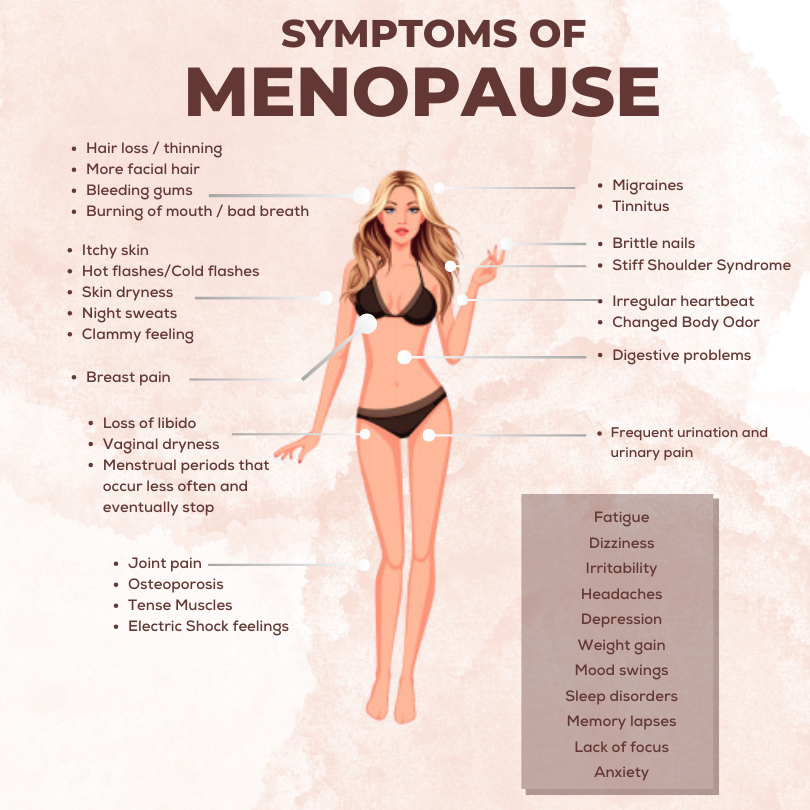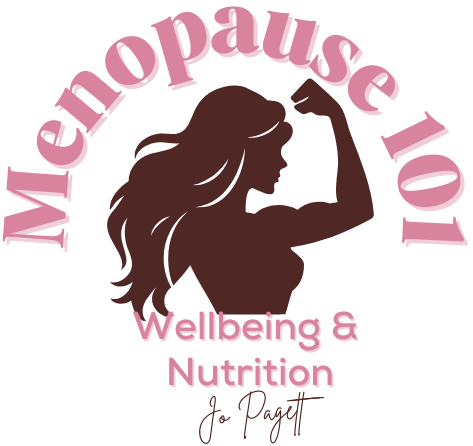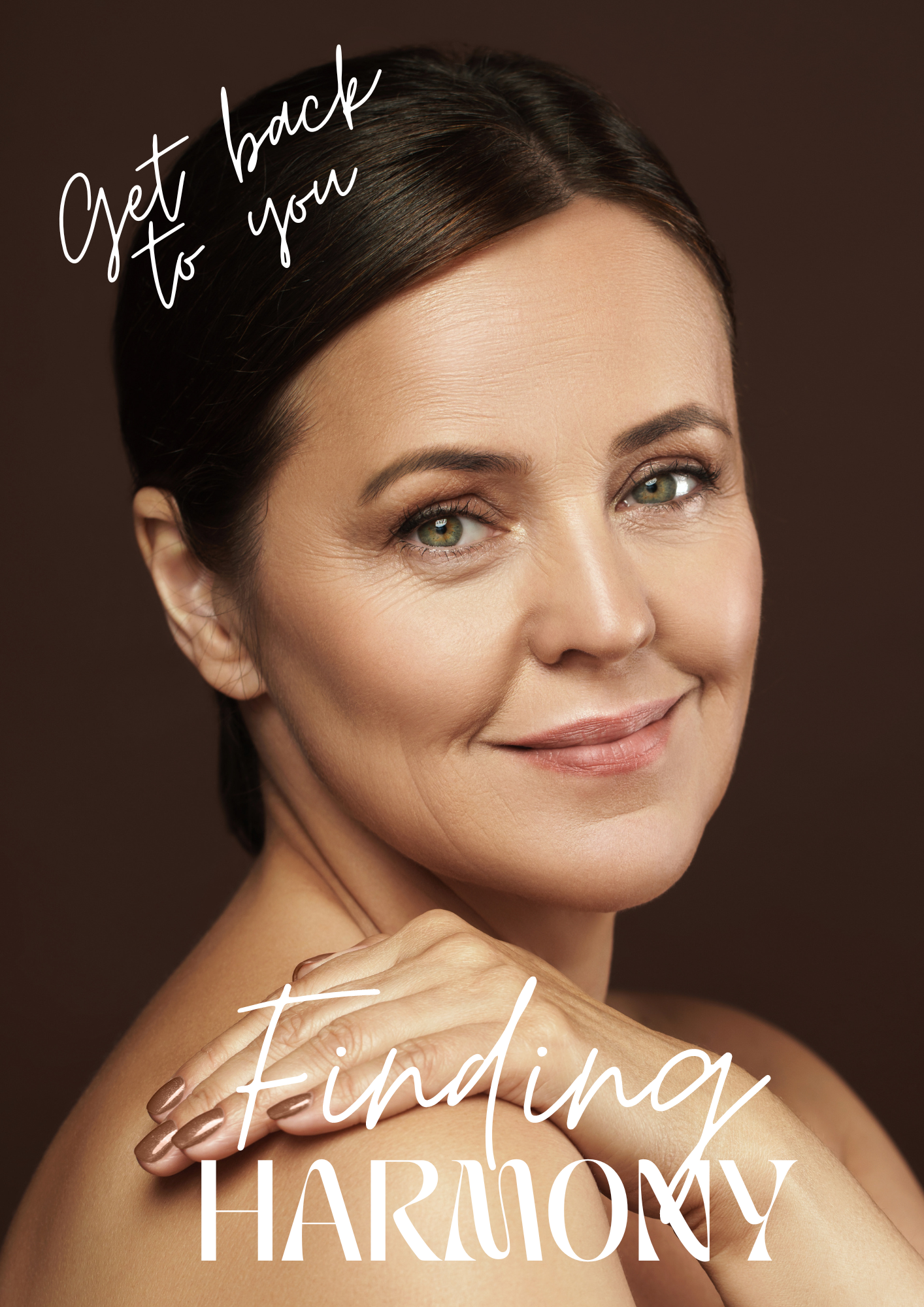Menopause
The Menopause is a natural biological process that marks the end of a woman’s menstrual cycles and fertility. It is a significant life transition typically occurring in the late 40s or early 50s, though the exact timing can vary widely among individuals. The process of menopause is officially confirmed when a woman has gone 12 consecutive months without a menstrual period.
The medical definition is according the “National Library of Medicine” Menopause occurs in a split second, it’s exactly one year after your last period.
The Menopause phase typically follows the Perimenopause, there are 3 types of Menopause
- Natural Menopause – with the 3 phases Peri / Meno / Post, we will look at post later
- Surgical / Medically induced – Hysterectomy or as a result of medical treatments.
- Early Menopause, known as premature ovarian deficiency. This is defined as when happening under the age of 40 and can occur for a variety of reasons
Menopause is primarily driven by hormonal changes, particularly a decline in estrogen and progesterone production by the ovaries. These hormonal fluctuations lead to various physical and emotional symptoms.
Common symptoms of menopause include:
Hot Flushes – Sudden feelings of warmth, often accompanied by redness and sweating.
The dreaded Night Sweats – Hot flashes that occur during sleep, leading to excessive sweating.
Irregular Periods – Menstrual cycles become unpredictable and may eventually cease.
Vaginal Dryness – Reduced lubrication and elasticity in the vaginal tissues.
Mood Changes – Fluctuations in mood, including irritability and mood swings.
Sleep Disturbances – Difficulty falling asleep or staying asleep.
Weight Gain – Changes in hormonal balance can contribute to shifts in body composition, leading to weight gain, particularly around the abdomen.
Cognitive Changes – Some women report changes in memory and cognitive function during menopause, though research on this aspect is ongoing.
These are just a few of the common better known symptoms.
Did you know that there are around 40 different symptoms when you go through the Perimenopause to Menopause to Post Menopause, and yes there are the 3 stages. Not just Menopause as is often just spoken about, and is a big misconception.

While menopause is a natural and inevitable part of the aging process, the symptoms can vary widely among women. Some may experience minimal discomfort, while others may find the symptoms disruptive to their daily lives. It’s essential to recognise that menopause is a unique journey for each woman.
Perimenopause
We don’t think about the Perimenopause, or Hot Flushes, Brain Fog or Headaches until we are in our Menopause, but these are usually an indication that we are about to approach our Perimenopause and our Periods start to become erratic and irregular which is a sign that we are moving towards no longer being able to have babies, which can have a big sociological impact. This can starts as early as our mid 30’s or as late as our 50’s.
Maintaining a healthy lifestyle through regular exercise, a balanced diet, and stress management can contribute to overall well-being during perimenopause. I can help and put a plan in place to support you.
So you’ll see there is a common misconception when it comes to the understanding of what the Menopause really is, as most people, men and women understand it to be what is actually the Perimenopause. When in reality Menopause is just a moment or day in time which occurs 12 months after the last period. But in all truth how many women can actually say when this is? Especially as at this time in our lives our menstrual cycles are, well a bit hit and miss!
Post Menopause
Post menopause is the last phase which occurs straight after that minute you’ve moved out the Menopause phase. This is when women face an increased risk of certain health conditions, such as Osteoporosis and CVD (Cardio Vascular Heart Disease), due to the decline in Oestrogen levels. Therefore, it is important for women in post menopause to focus on maintaining a healthy lifestyle, including regular exercise, a balanced diet, and preventive healthcare measures, to promote overall well-being and reduce the risk of age-related health issues.
If you’re excited to know more and want to take control, book a 30 minute FREE Consultation call and let’s get started today and “Shatter the Stigma”
https://calendly.com/menopause101/30-minute-introduction-menopause-call

